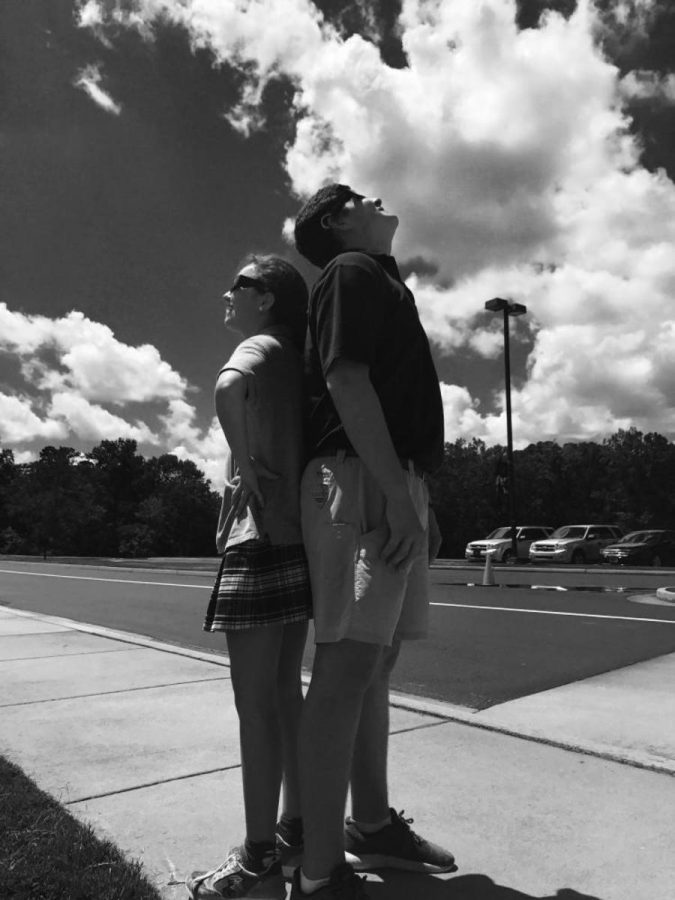Gazebo Photo by Karen Jarrard
Sophomore Lillie Sweet Strickland and junior Charlie Giles model the special glasses students will use to view the eclipse.
The approaching darkness
Excitement builds for once-in-a-lifetime eclipse
It’s not going to be a typical Monday at the Academy.
The first eclipse in 99 years to travel across the country from coast to coast will make its way over the skies of Stratford some time around 2:39 p.m.
Almost the entire school will be watching.
“I’m excited to see this event of a lifetime,” said senior Tejas Athni.
“Being involved with the total eclipse of the sun is pretty rare, said Dr. Bob Veto, head of school. “It seemed like, as an educational institution, it would be wrong for us to miss the opportunity.”
Upper and Middle School classes will be dismissed at 2:15 p.m., which is first period during Wednesday’s “C” schedule. Students and teachers will gather at the football stadium. Students may sit in the stands or on the track but will not allowed on the field. Those not wishing to participate will report to the gym.
Students will return to their classrooms at 3 p.m. The Upper School will dismiss the regular time of 3:20 p.m.
The school has ordered IOS-approved glasses, to make the viewing safer. They will be distributed prior to the eclipse. Still, students are urged to exercise caution and not look directly at the sun.
“Students absolutely need to understand that looking at the sun without the glasses we provide can cause irreparable damage, even blindness,” Upper School Principal Mrs. Margaret Brogdon said in a memo to the faculty.
In the middle of the day, it will be dark … very dark. The automatic lights in the parking lot are expected to come on.
The partial eclipse is expected to be 95.4 percent.
“We are close to a 96 percent line of totality, which is pretty cool,” said junior McKay Powers.
Ms. Holly Leskovics, the Lower School STEM teacher, said she researched the eclipse and found out that it will last for four minutes. However, it will start to get dark around 1 p.m. and will not be fully light again until 4 p.m. There will be a three-hour range where we will see a different in our usual daylight.
“Eclipes actually happen a lot more than you would think,” said Mrs. Katy Burton, a Lower School science teacher. “There are plenty of interactive maps you can find online but they very rarely happen in the United States, so this time we are lucky enough that it stretches across the East Coast to the West Coast.”
One student who was not at school on Monday was ninth-grader Harmony Nagle. She and her family have been planning a trip to the mountains in Clayton, Ga., since Christmas. Clayton is in the northeastern corner of Georgia, in the path of the total eclipse.
Nagle said she wished she was not missing school but was excited about the opportunity.
“It’s a once in a lifetime experience to see a natural phenomenon like a full solar eclipse,” she said.
